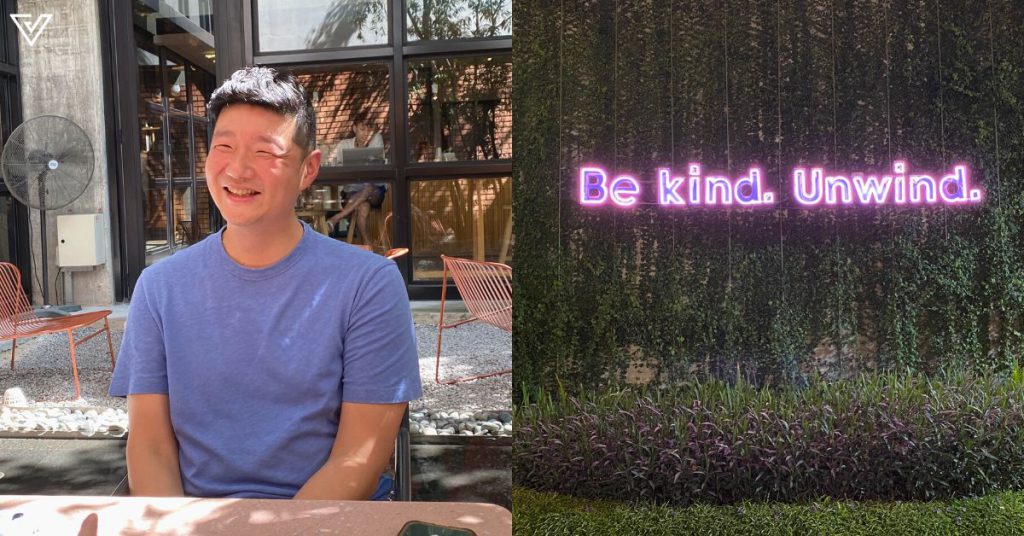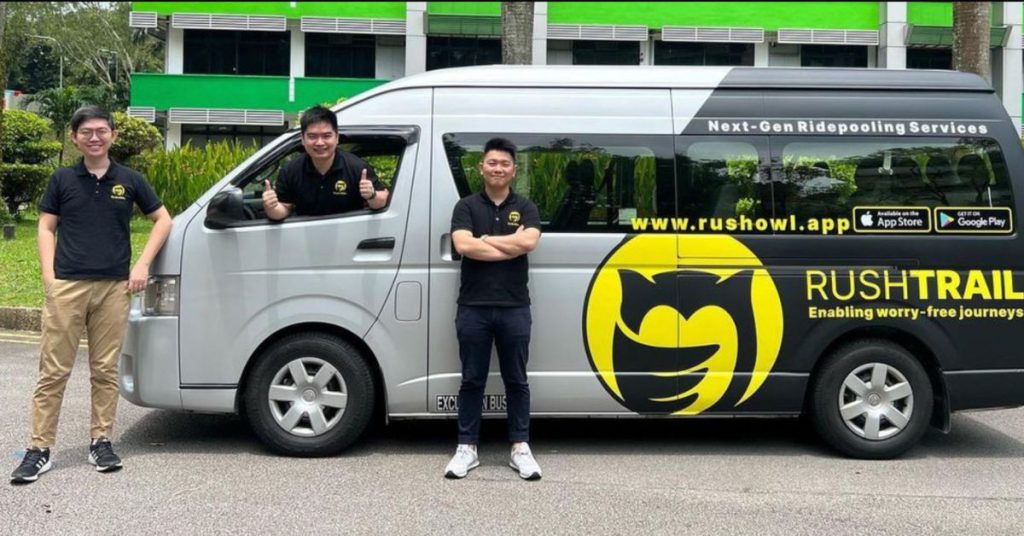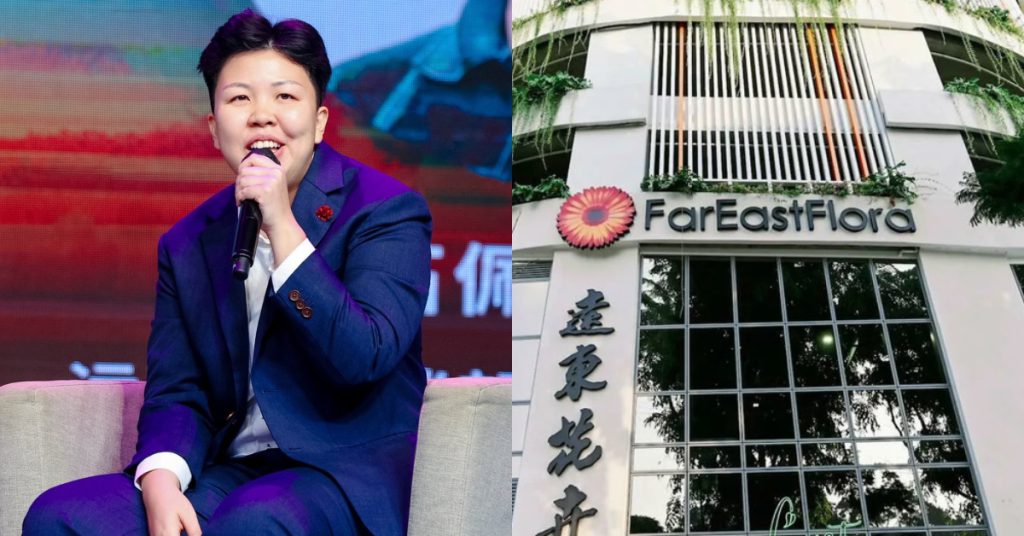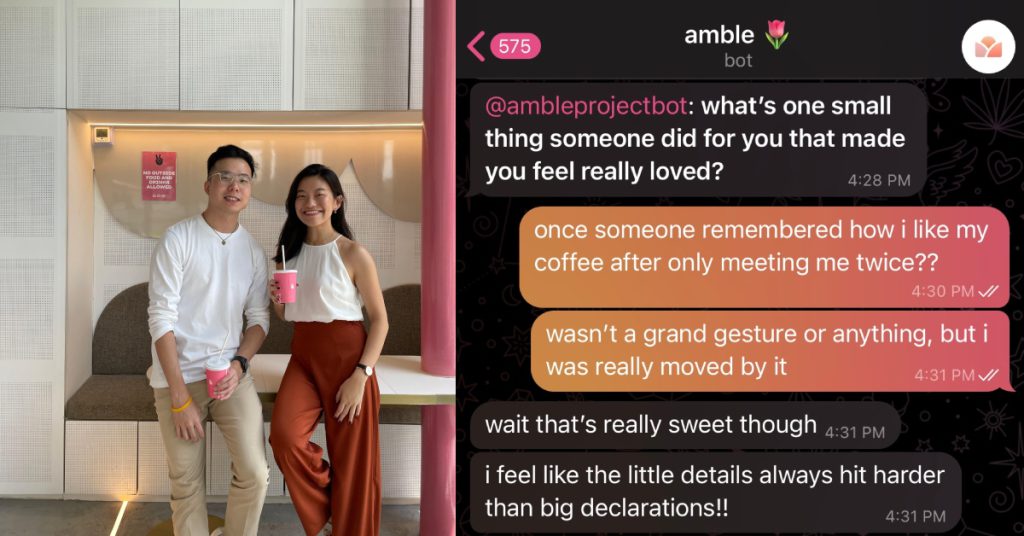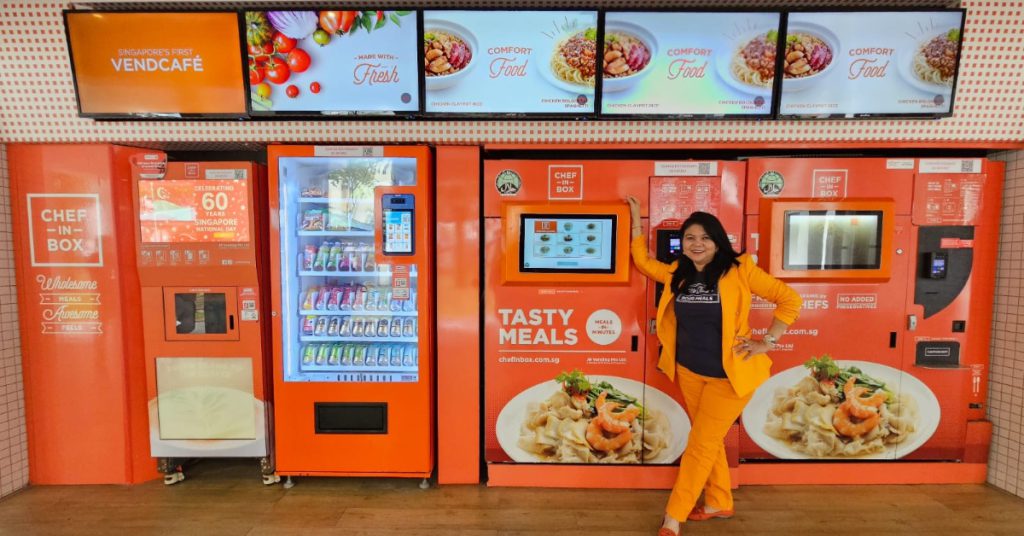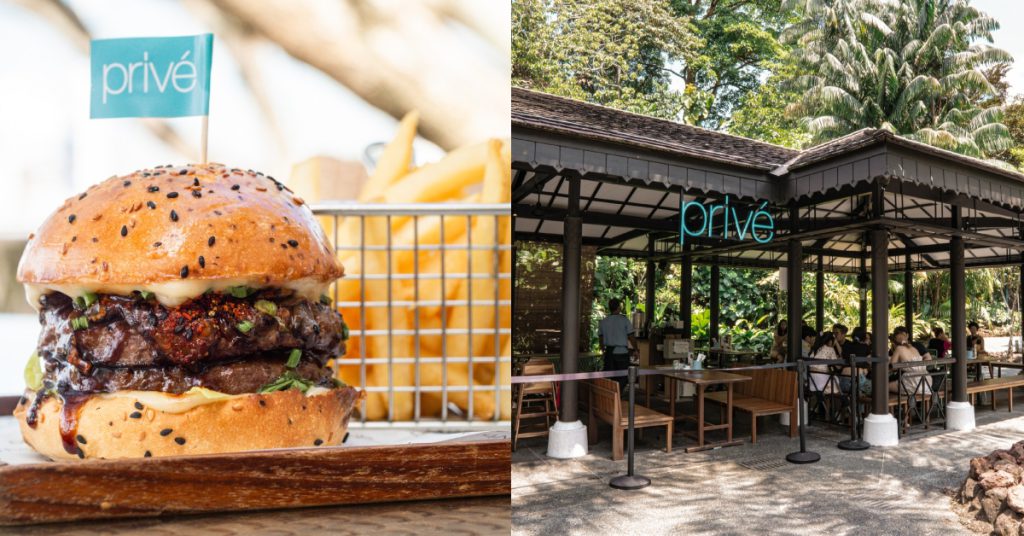Kindness is more than just a virtue at KLoé Hotel—you could say it’s a way of life.
(If you’re anything like my editor, you might think this is a bunch of bull. But, stay with me here.)
Nestled behind a Shell station and accessible through an incredibly easy-to-miss alley, KLoé is a boutique hotel that’s supposedly crafted for creative nomads.
This is perhaps most prominently showcased through the hotel’s five Artist Lofts, which are themed rooms centred around art, music, books, food, and gardens.
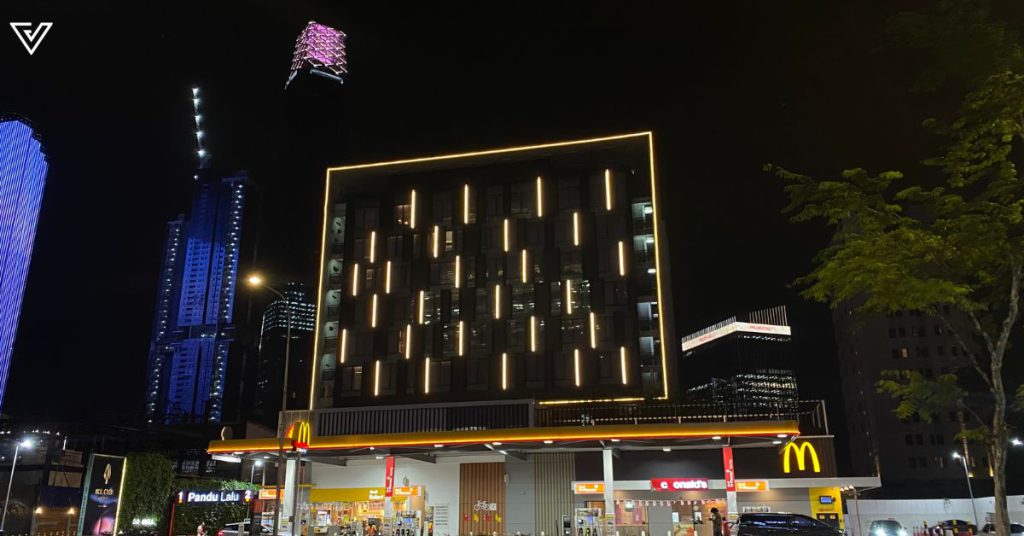
It’s categorised as a three-star hotel, but that’s more of a commentary of its facilities (or lack thereof, since it doesn’t have a gym or spa or fine dining spot like a proper five-star) than the actual experience it seeks to provide.
Because one thing about KLoé is its focus on “kindness”. You’ll see this printed on the floor right as you walk through the doors.
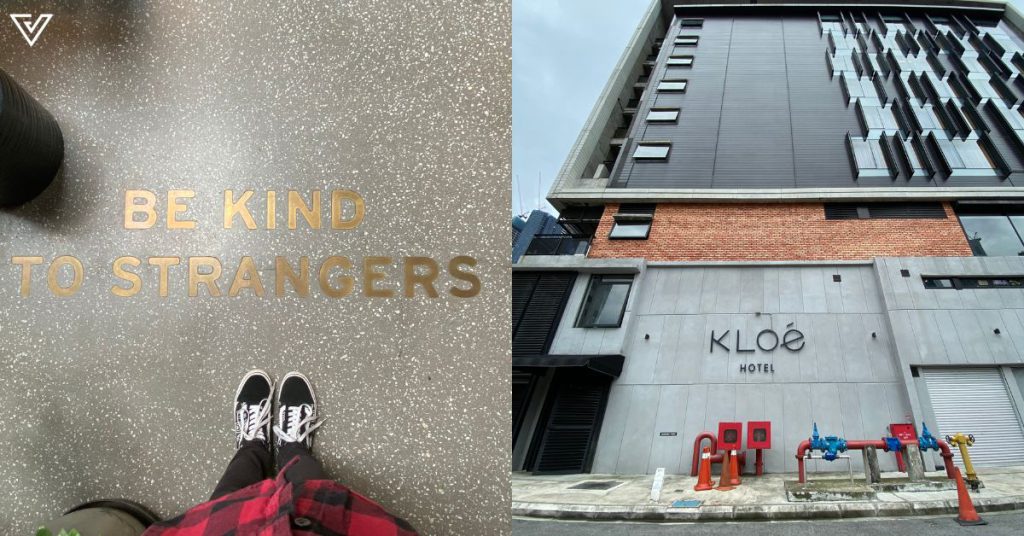
During our recent 3D2N workcation there (which you can read about here), we were able to sit down with Ng Ping Ho, the founder of the hotel, to learn how KLoé actually makes good on its concept of kindness. But first, you need to know how the hotel came to be in the first place.
The root of kindness
It started off with an experience in KLIA many years ago.
Ping Ho had been queuing up to place his order at a restaurant in the Satellite Building. Here, he noticed that the lady at the cashier was behaving very rudely to people.
When it got to his turn, he gave a big smile and asked how she was doing—but she did not return in kind.
From there, he observed how the service staff were not happy, customers were not happy, and the whole experience was just wrong. When he checked their Facebook page, it was already plastered with other bad reviews.
Telling his brother about this experience, his brother had questioned him back, “Do you think the staff there are happy working there?”
“Probably not,” Ping Ho said.
“Do you think they’re being taken care of by their boss?”
Again, Ping Ho said, “Probably not.”
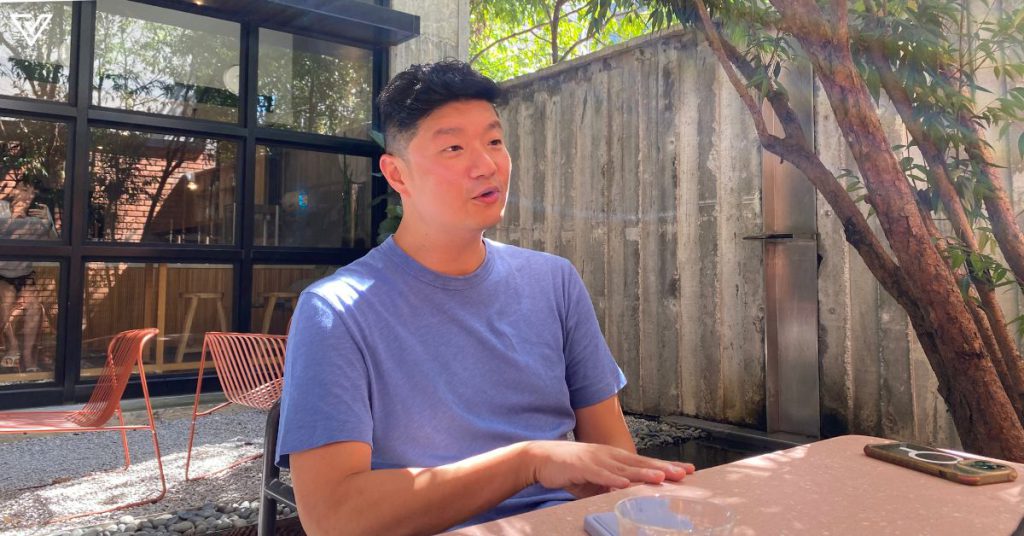
That’s when he realised that if you want to deliver a good experience to customers, you need to start by caring for the people who work for you.
Starting then, Ping Ho began conceptualising the idea for what would become KLoé .
Cultivating the kindness
“At the time when I was planning the hotel, there weren’t real boutique hotels in KL,” the founder explained to us, sitting in the small courtyard of the hotel.
“There were a lot of budget hotels, a lot of luxury hotels, but you didn’t really have a hotel that was trying to give a very different or fresh experience. That’s what this hotel is about.”
This was around 2010—10 years before KLoé’s launch.
Prior to starting KLoé, though, Ping Ho opened BackHome KL, a backpacker’s hostel. At that point, he had zero experience when it came to anything hospitality, as he had been working as a TV director.
But he didn’t stop thinking about what he could do next, and came up with more ideas to execute.
One was running a café (which he does through LOKL Coffee Co), and one was running a hotel. Essentially, he wanted to create unique spaces, something that his experience as a director has helped with.
“When I build a place, whether it’s a café or hotel, I always think of it as a journey as well, like telling a story,” Ping Ho explained.
“What kind of story do you want to tell when a person first enters a place? How do you want them to experience and go through the space? When you first head to the lobby, what’s the lighting going to be like, what’s the soundtrack going to be like?”
Through the backpacker’s hostel, he learnt that people were willing to pay for rooms without bathrooms or extra facilities, even though they could go for a budget hotel with their own bathroom. It wasn’t about the price, but the experience they wanted.
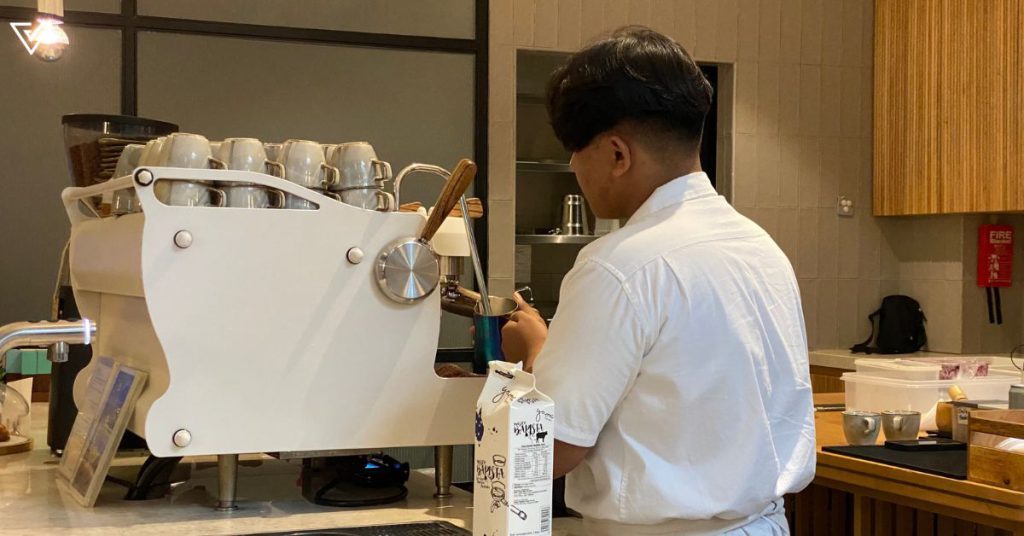
This experience included a sense of community with other backpackers, and receptionists who could give recommendations and advice on what to do for the day.
That’s when he got the idea for starting a boutique hotel with elements of a backpacker hostel’s vibe.
Teaching kindness to his staff
But the crux of what I wanted to know was what exactly does this whole kindness thing really mean? Is it just a gimmick? Shouldn’t all hotels be hospitable, and by extension, kind?
“Actually, we train our team on this. We ask them, what’s the difference between kindness and customer service?” Ping Ho said.
The short answer is: “Usually, kindness comes from inside you, customer service you follow a set of guidelines. With kindness, you go out of your job scope.”
He sees it like this—a kind person would go out of their way to do something. Plus, kindness doesn’t discriminate.
“If you have someone coming in with a driver or helper, are you just going to serve the guest or will you also say hi to the driver or helper, or even better, offer the driver or helper a drink?” he said.
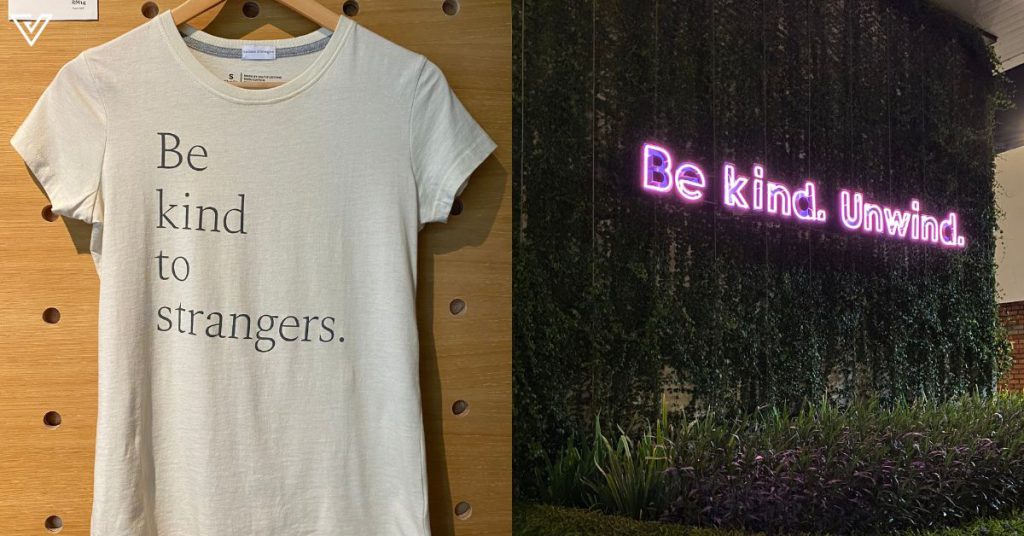
But with KLoé’s focus on kindness paired with the overused adage of “the customer is always right”, how does he prevent his team from being taken advantage of?
To this, Ping Ho returned, “Is being kind and being nice the same?”
Many might feel inclined to say yes, but Ping Ho uses an example to explain the difference. “Think of a teacher you had in school. Was he very strict? (Yes.) Was he nice to you? (No.) Was he kind to you? (Yes.)”
The lesson here is that being kind is caring for someone, but it isn’t always being nice to someone.
“It comes from a place that this is your home, you are the host, you are in charge,” he said, referring to the concept whereby staff members are the tuan rumah of KLoé. “When someone comes into your home, do you bow to people?”
While that may be what many hotels do, Ping Ho’s stance is that KLoé is the homes of the staff members, and thus they are in charge. There should be a sense of authority and ownership there, compared to just subserviently taking unfounded criticisms.
“Once you have that confidence and once you behave like you’re in charge, chances are the guest won’t step on you.”
How the kindness manifests
At the end of the day, as much as a business might harp on its virtues, it doesn’t mean much until you see it in action.
Having been lucky enough to visit a handful of hotels for workcations, I actually did feel the effort that KLoé’s staff put into being kind.
All interactions I’ve had at other hotels have been entirely nice, but the overt niceties and hospitality do differ from the kindness that KLoé’s staff were trained to extend.
Throughout our stay, there were a handful of kind gestures such as offering little delights during the turndown service, and acquiring a huge bucket of ice for me—but these are typical things from a hotel.
Here’s something I felt was truly kind—when checking in, our team overlooked that we needed RM200 in cash or a credit card as a deposit. Before I could begin to panic, a staff member told us it was fine and waived it for us.
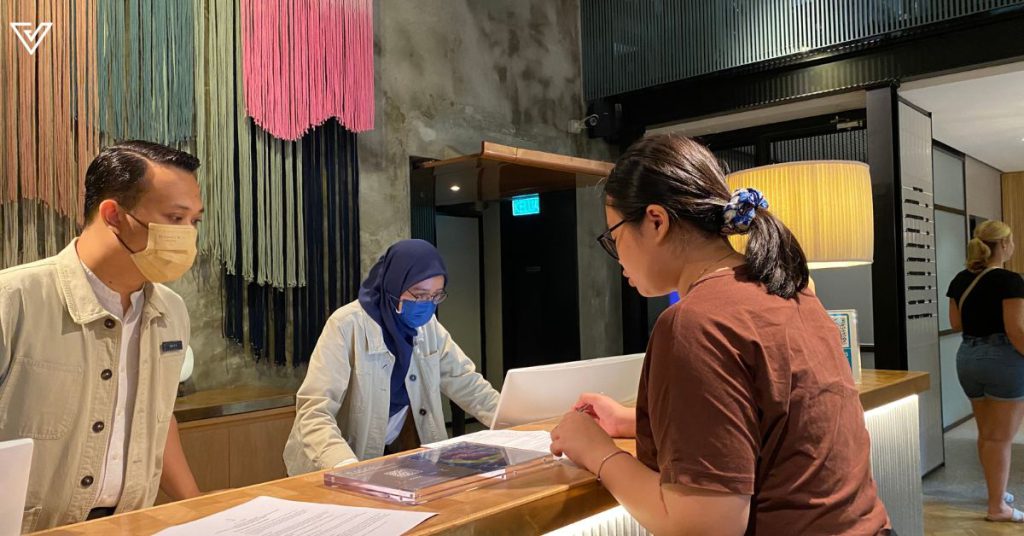
Yes, it’s not like they would’ve footed the bill should we have incurred any costs. Representing a media company, I’d think that they trusted we would’ve honoured any charges we might’ve racked up.
However, SOPs are SOPs, especially at institutions such as hotels. They could’ve told us the nearest ATM machine, or said they needed to check with a higher-up.
That’s when I really learnt what it means when the team said that the staff members at KLoé are empowered to make kind decisions. There was no need to ask someone, no hesitance in helping. This, I think, is the culture that KLoé has built, and I hope continues to be fostered.
Growing the kindness
When the hotel first opened, Ping Ho recalled, it was an exciting time, and many people came by to check out the space and take Instagram photos. The restaurant, Monroe, had been doing great too.
“At the time, I forgot how to enjoy myself. I didn’t appreciate those times,” he admitted. “The hotel is a bit quieter now, it’s gotten its own rhythm, but it’s moved past that stage where it’s exciting and it’s more about growing into our values.”
Likewise, Ping Ho has grown beyond his role, and now has become more of an ambassador of the hotel’s values compared to just someone focusing on the day-to-day.
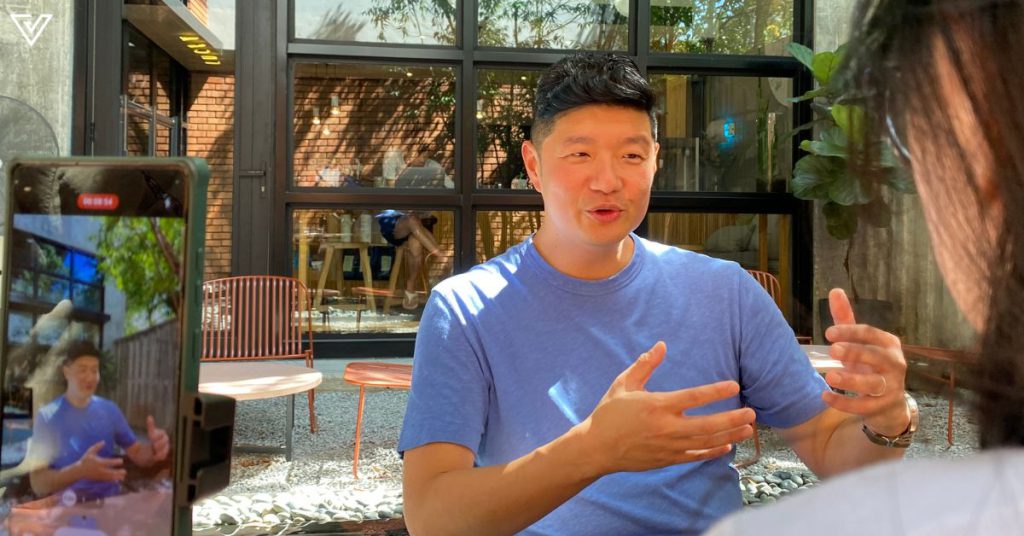
Moving forward, Ping Ho has other growth plans in mind. Being a rather conservative businessman, he doesn’t have any plans to franchise the KLoé brand, but rather plans on diversifying.
For one, he has started a community space called High Street Studios, which is where the backpacker’s used to be. Excitingly, he also revealed a new upcoming hotel.
“My next hotel is called Market House,” he said. “It’s in the first OCBC bank in Malaysia, so it’s a very beautiful, historic building and that’s going to be something very exciting to us. It will have the same Kindness of Strangers values, but it’s an entirely different hotel.”
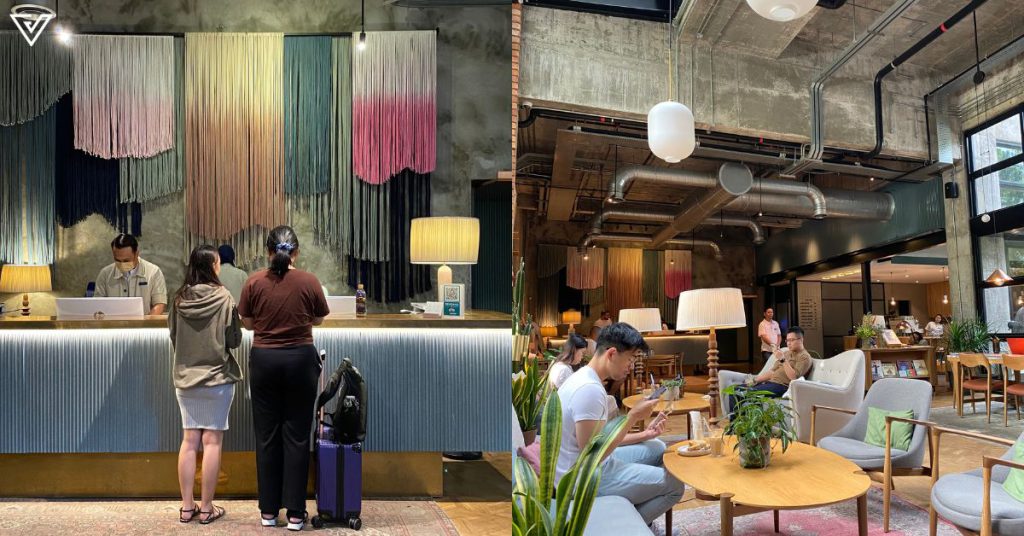
Where KLoé is about staying in, Market House will be all about going out.
With that, the local boutique hotel scene is expanding again. Over the years, there have been more such establishments cropping up, such as Else Hotel and The Chow Kit. With that, I wondered whether the competition has gotten challenging for Ping Ho.
“It does get challenging,” he admits. “My philosophy is that there’s always going to be a more beautiful hotel. And so, our focus is really on the team. It’s like, we always want to be a hotel you want to come home to.”



